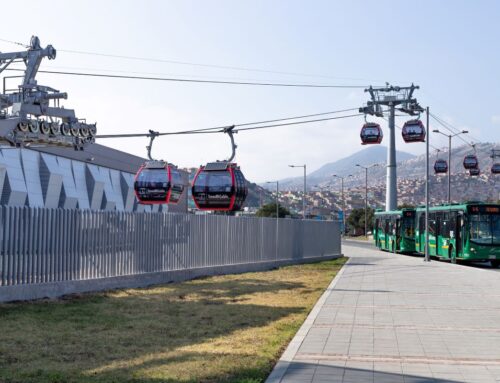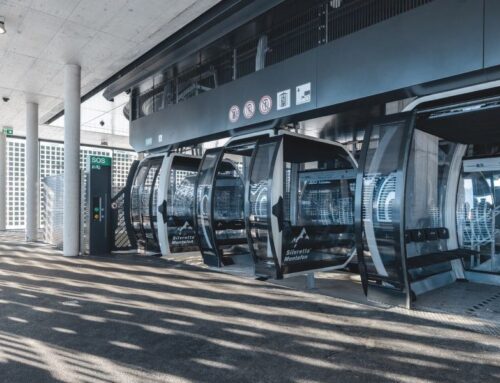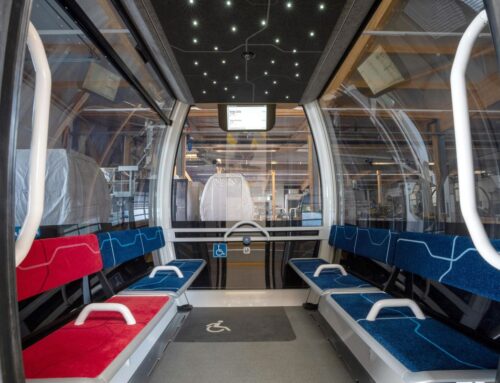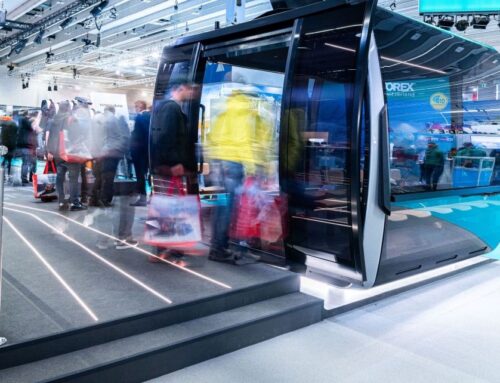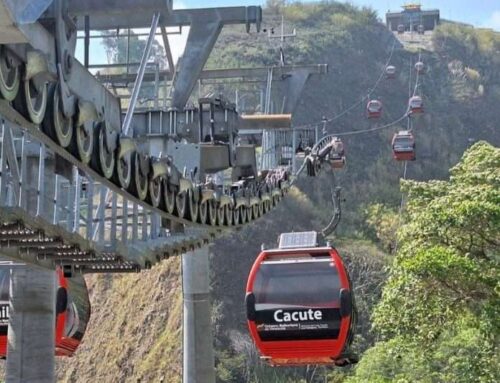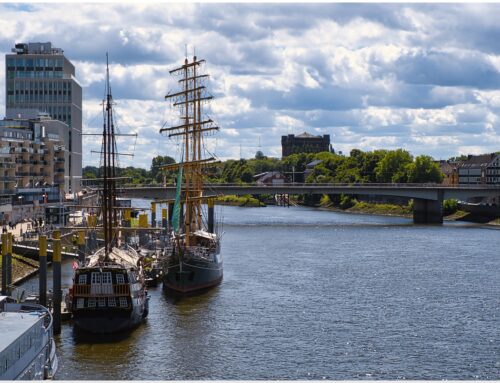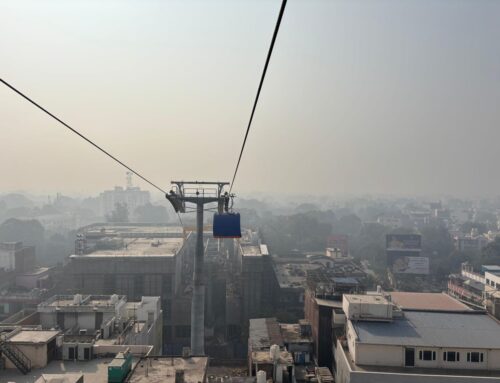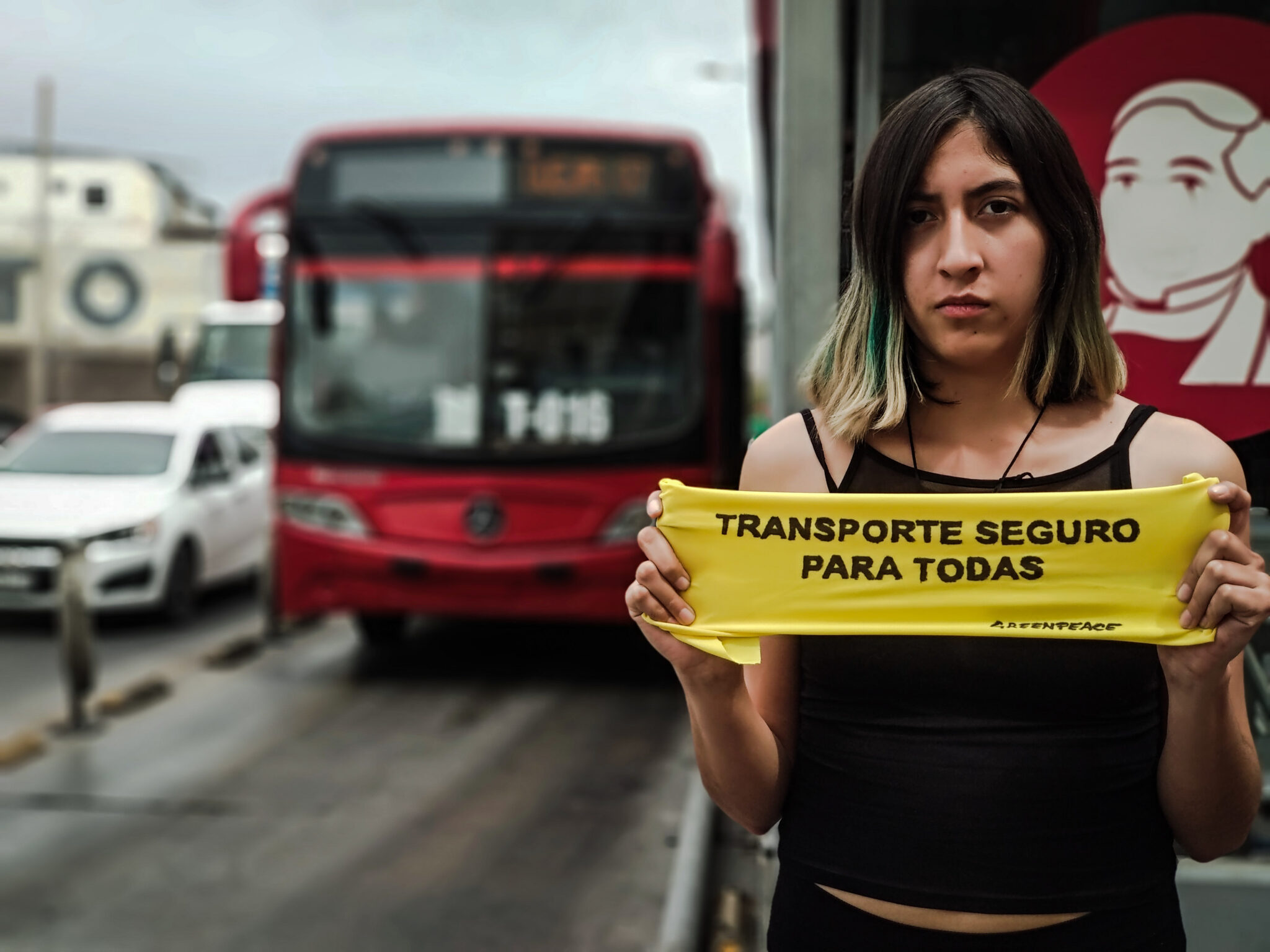
Cities, SI-Urban
Gender on public transport and in the urban cable car
For public transport it must be ensured that transport policy and planning are sustainable, accessible, affordable, safe and gender-specific, with consideration of the different needs of women and men. In the investigation by Vienna University of Technology, there are many factors that affect actual and perceived safety and they differ when considered in relation to gender.
Some affect males and females in the same way; others are more of a problem for women. Medellín, or officially Medellín city council, is the second largest city in Colombia and the capital of the department of Antioquia. A case study in Medellín looked at the perception of safety in public transport.
Problems an conflicts are always cross-sectoral. For the main investigation,Vienna University of Technology focused on categorising people by gender, grouped by male and female. As the Metro cable cars in Medellín connect the low-income districts to the city centre, the considerations are automatically accompanied by categorisation of class.
Security measures in the stations
Security staff monitor the gondolas during both boarding and alighting. Photos: MetroMedellín
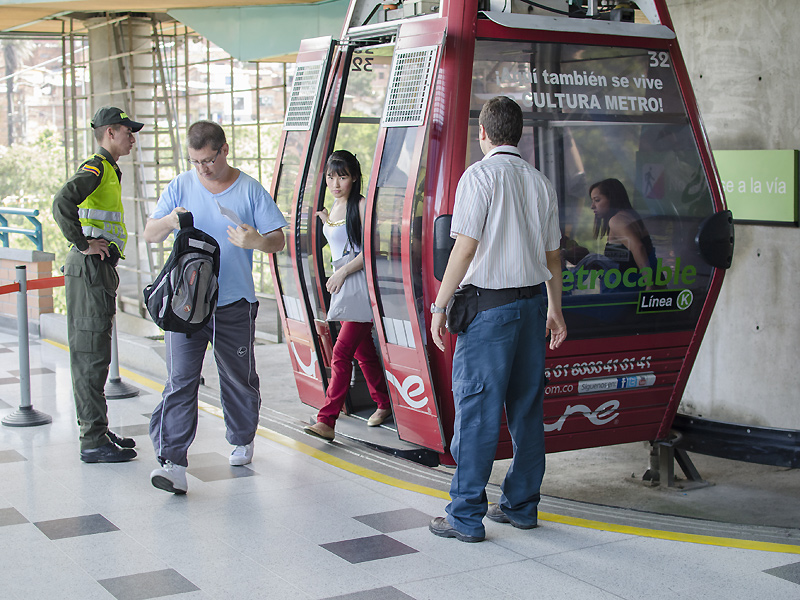
The result of the survey between women and men shows: three out of five women feel unsafe in public spaces, five out of five women have experienced harassment, three out of five women prefer to change mode of transport. On public transport, women are often affected by violence and harassment from other transport users.
To improve safety in public transport, the city needed to overcome three challenges. First, the way to the stations: unsafe paths, poor lighting. Second, the situation when using the mode of transport: avoiding overcrowded gondolas and harassment, and being able to alight/change in an emergency.
Third, the planning process: making cable car stations safer in districts with lower incomes and providing better lighting for footpaths. The strategies that women use to avoid dangerous situations in public transport and on their way home often take more time than the direct route to the destination and are therefore less efficient.
Possibility of changing the cabins
The doors open in every station.
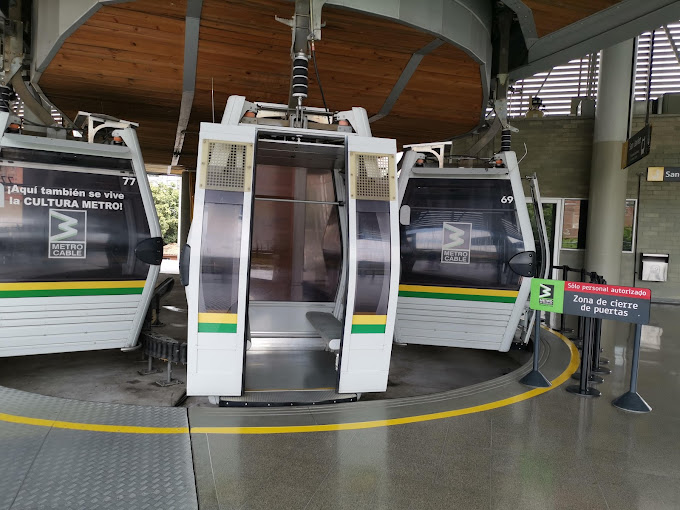
Measures to improve safety
Medellín decided to implement measures on various levels: more visible security staff on the ground, campaigns against the harassment of women, surveillance by cameras in the stations, upgrades for public spaces, more women in the security staff and a stronger security staff presence at the stations.
Furthermore, it was ensured that changing gondolas is possible in the stations with no loss of time and that the cable car is connected to other modes of public transport. In each station, the automatically opening gondola is checked by security staff on the platform. This has reduced the risk for women on public transport.
